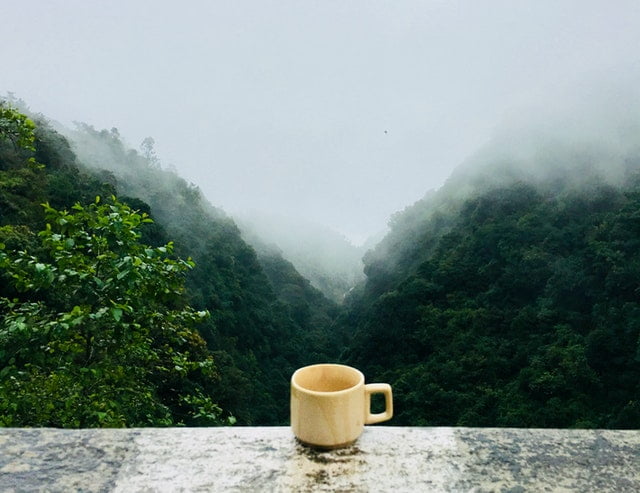The World’s Most Expensive Coffee

How much do you pay for your coffee? Are you a brew-it-at-home, bargain-coffee person, or more of a Starbuck’s latte? Do you scoff at waiting in long lines to pay too much for a cup of coffee at a specialty coffee shop when you can get one just as good at the gas station? Or maybe you’re lucky enough to work in an office with a break room stocked by Coffee Mill and you just wait until you get to work? In any of these scenarios, it is unlikely that you answered $50 – $75/cup! It’s hard to believe, but it is possible to pay that much for a cup of coffee. Read about the world’s most expensive coffee (and how to get it if you have some extra cash burning a hole in your pocket).
Elida Geisha 803
$803/pound, $75/cup – Panama
These beans recently sold for $803/pound at an auction after winning the Best of Panama coffee competition (hence the ‘803’ in its name), making it the most expensive coffee in the world. Only 100 pounds of beans were available to buy, and a cafe in California scored 10 pounds. The cafe, Klatch Coffee Roasters, was the only place in North America where you could get a cup. Klatch sold cups for $75 each, and quickly sold out! It makes a $5 latte seem like a bargain, doesn’t it?
Finca El Injerto Coffee
Over $400/pound – Guatemala
A father-son duo with a strong commitment to sustainable farming and environmental practices produces this coffee. El Injerto is Guatemala’s first carbon neutral coffee farm and is Rain Forest Alliance certified. They take care of their employees, providing them with housing, roads, access to doctors and medicines, and assisting with building schools and factories. A cup of this coffee may be costly, but it’s certainly the ultimate guilt free coffee!
Black Ivory Coffee
Over $500/pound, $50/cup – Thailand
Black Ivory Coffee produces, according to their website, “The world’s rarest coffee. Naturally refined by elephants.” The company’s mission is to take the negative situation of human-elephant conflict and turn it into something positive: a great tasting coffee that creates an experience for the consumer. With a description like “notes of chocolate, malt, spice, a hint of grass without the burnt or bitter taste of regular coffee,” who wouldn’t want to try it? The only catch: “naturally refined” may not mean what you think it means.
100% Thai Arabica cherries are picked and given to elephants, along with their food. It’s worth mentioning that these elephants live with an ‘elephant caregiving family’ and are treated very well. The elephant eats and digests the food and coffee cherries. Once the elephant… ahem… deposits the food and beans, the elephant caregivers hand-pick the cherries from the droppings. The cherries are brought to the local high school, where students are paid to wash and sun dry the coffee cherries. The company prides itself on its commitment to social responsibility and pays its employees a fair living wage.
You’ll only find this coffee at the finest hotels and eating establishment and expect to pay around $50 a cup.
Kopi Luwak coffee
Over $500/pound – Indonesia
Kopi Luwak uses a similar process to Black Ivory Coffee, except instead of elephants, a Civet (a cat-like animal) eats the coffee cherries and ‘processes’ them. This coffee started out as a ‘wild and free’ process, with people picking up droppings from wild Civets. Over the years some companies have moved to keeping the Civets in cages and treating them cruelly. If you want to give this coffee a try, seek out companies that utilize ethically sound practices. Kopi Luwak Direct is one such company that has free range Civets, follows fair trade practices, and provides education and other services to the community.
Needless to say, most of us will never experience the world’s most expensive coffee. Coffee that is $803/pound, or coffee that has passed through another animal’s digestive system before brewing. We think we’ll stick with the more pedestrian, affordable, and yet still delicious, blends available from Coffee Mill!